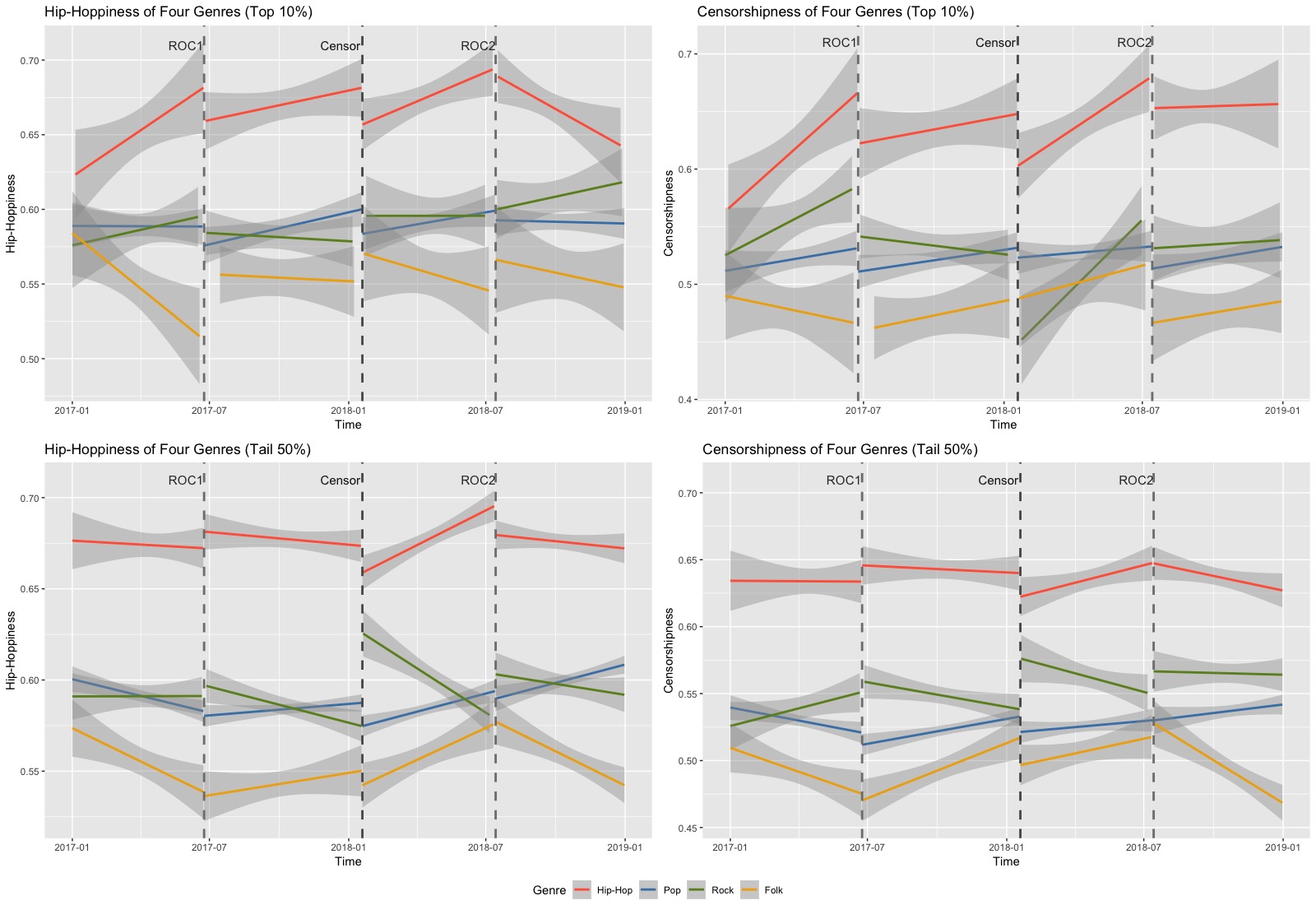Disperse and Preserve the Perverse: Computing How Hip-Hop Censorship Changed Popular Music Genres in China
Ke Nie, Department of Sociology, University of California, San Diego
-
Published in Poetics in 2021. Featured in Special Issue: Measuring Mohr Culture.
-
Winner of Communication, Information Technologies, and Media Section Best Student Paper Award, American Sociological Association
[Full article (OA)] [Online Appendix]
How do political interventions reshape genre boundaries? Previous studies on genres only tangentially touch on this question as they mostly focus on the artistic, economic, or critical consequences of genre spanning. This paper fills in this gap by exploring the impact of music censorship on the censored genre and other related genres. Using an original dataset of 53,364 songs released on a Chinese online music platform, I study how Hip-Hop censorship in China in 2018 impacted Hip-Hop as well as Pop, Rock, and Folk songs in terms of how they sound and what topics are engaged in the lyrics. I propose a novel, computational approach to measure sound similarities between songs by using Music Information Retrieval (MIR) algorithms which synthesize audio signal processing and neural networks. I also measure the change of topic prevalence in song lyrics by using topic models supplemented with a dictionary approach. I found that post-censorship Hip-Hop songs sound significantly different from pre-censorship ones, with a bigger impact on the high-profile songs. Moreover, Rock, as a close genre to Hip-Hop, became more “Hip-Hoppy”, while Pop, a mixed category that reflects trending genres, became less “Hip-Hoppy”; the impact on these two genres is more salient among their low-profile songs. Folk, a genre distanced from Hip-Hop, remained generally untouched. The censorship also made Hip-Hop musicians engage less with topics related to violence and deviant behaviors but more with sexual terms, albeit in a covered form and not necessarily related to sexual conduct per se. The findings suggest a dispersion model in explaining the outcome of political interventions in genres, where stylistic conventions of the censored genre are dispersed from salient works of that genre to less influential ones as well as to adjacent genres.
